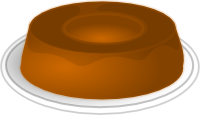Associations to the word «Tart»
Noun
- Vicar
- Upside
- Comprehension
- Chunk
- Blanc
- Pepper
- Goose
- Bottle
- Rabbit
- Loaf
- Honey
- Remark
- Mushroom
- Reply
- Opium
- Syria
- Fare
- Crab
- Cool
- Shilling
- Bi
- Cue
- Dinner
- Rice
- Transcript
- Astronomer
- Acid
- Flesh
- Spoon
- Maggie
- Dressing
- Roll
- Nut
- Babe
- Breakfast
- Soap
- Spa
- Rhyme
- Scent
- Ri
- Odor
- Viewing
- Plate
- Core
- Maid
- Stir
- Fish
- Iris
- Fork
- Denis
- Chef
- Tongue
- Turtle
- Pan
- Queen
- Specialty
- Chimney
- Orchard
- Shell
- Gay
- Seed
- Supper
- Punch
- Tone
- Bean
- Fill
- Pig
- Drink
- Nick
- Phoenix
- Net
Adjective
Pictures for the word «Tart»
Wiktionary
TART, adjective. Sharp to the taste; acid; sour.
TART, adjective. (of wine) high or too high in acidity.
TART, adjective. (figuratively) Sharp; keen; severe.
TART, noun. A type of small open pie, or piece of pastry, containing jelly or conserve; a sort of fruit pie.
TART, noun. (British) (slang) A prostitute.
TART, noun. (British) (slang) (derogatory) By extension, any woman with loose sexual morals.
TART, verb. To practice prostitution
TART, verb. To practice promiscuous sex
TART, verb. To dress garishly, ostentatiously, whorishly, or sluttily
TART BURNER, noun. (US) A decorative, usually ceramic, pot containing a candle made from fragrant wax
TART CARD, noun. (UK) (slang) A card advertising the services of a prostitute.
TART CARDS, noun. Plural of tart card
TART UP, verb. To dress like a prostitute.
TART UP, verb. To dress garishly.
TART UP, verb. To modify or repackage a product, service, or idea to make it more attractive or easier to sell.
Dictionary definition
TART, noun. A woman who engages in sexual intercourse for money.
TART, noun. A small open pie with a fruit filling.
TART, noun. A pastry cup with a filling of fruit or custard and no top crust.
TART, adjective. Tasting sour like a lemon.
TART, adjective. Harsh; "sharp criticism"; "a sharp-worded exchange"; "a tart remark".
Wise words
Think twice before you speak, because your words and
influence will plant the seed of either success or failure
in the mind of another.
.png)
.png)



